Jakarta, MINA – The Japanese Ambassador to Indonesia Kanasugi Kenji said that his country’s defense cooperation with Indonesia had made significant progress in recent years and was getting stronger.
According to him, the role of the two countries’ defense cooperation in the midst of many common security challenges as maritime countries that are in the same region, will become increasingly important.
“Indonesia is a very important partner for us. We have the same values as a maritime nation which is located at a strategic point in the Indo-Pacific,” Ambassador Kenji said while speaking at the 68th Japan Self Defense Forces Day Commemoration in Jakarta on Friday evening.
The Ambassador said that in the field of defense, Japan and Indonesia are partners who learn from each other’s knowledge and experiences, improve the capabilities of both parties, work together hand in hand for regional peace and stability.
Also Read: Imam Yakhsyallah Highlights Ummah Unity as the Core Path to the Liberation of Al-Aqsa
Kenji stated that there had been significant progress in defense and security cooperation in recent years reflected in high-level exchanges from all branches of the military.
He gave an example of the visit of the leaders of the Japanese army and air force to Indonesia, as well as the visit of the leadership of the Indonesian navy to Japan.
In addition, Kenji also mentioned that one of the most symbolic achievements for the two countries’ defense cooperation was Japan’s participation for the first time in the Super Garuda Shield joint exercise, which is a multilateral joint military exercise.
“Symbol of this is the participation of the Ground Self-Defense Force (GSDF) for the first time in the Super Garuda Shield. This contributes to the maintenance and strengthening of a free and open Indo-Pacific region and is a great achievement,” he said.
Also Read: Prof. El-Awaisi Urges Participants to Continue Spreading Baitul Maqdis Culture
Garuda Shield, previously conducted between Indonesian and US Army forces, this year expanded into a multinational exercise, Super Garuda Shield, involving all types of services including the Navy (AL) and Air Force (AU), making it the largest joint exercise in the Indo- Pacific
On August 3, 2022, Kenji also witnessed the opening ceremony of the drill which also featured airborne training by three countries, namely the US, Japan and Indonesia. This is the first actual exercise conducted by the GSDF and TNI-AD. The US Army is also involved thereby enhancing tactical skills and building mutual trust as well as demonstrating the collaboration and strong presence of all three countries.
Furthermore, he also said, defense cooperation was also taking place at the education level, where the Japanese National Defense Academy had accepted Indonesian Army cadets for several years, including one doctoral student from Indonesia this year.
Cooperation in the field of humanitarian assistance and disaster management is also progressing. The Japanese Ministry of Defense has so far held seminars and training for around 100 Indonesian and other military personnel.
Also Read: Thousands Arrive for “1,000 Volunteers for Gaza Reconstruction” Assembly in Jakarta
Between the two countries, there is also ongoing cooperation that contributes to peace and stability in the international community, including cooperation with the Peacekeeping Force.
The Japanese Ambassador was present with his wife and the Defense Attache of the Japanese Embassy, aptain Mizuno Hidenori and his wife. The event was also attended by government officials, Indonesian Army leaders from three forces, the National Police, related attaches from various embassies of other countries, intellectuals and others.
During this event, an introduction to the Japanese defense industry exhibition was also held from several Japanese industrial companies that have representatives in Indonesia.
The Japan Self-Defense Force (JSDF) itself is an armed force in Japan which was established after the end of the occupation of Japan by the United States after World War II.
Also Read: KH Anwar Iskandar Re-Elected as Chairman of Indonesia’s Ulema Council for 2025–2030
Although for much of the post-war period these forces operated confined to the Japanese islands and were not permitted to operate overseas, they have in recent years been involved in international peacekeeping operations. (T/RE1)
Mi’raj News Agency (MINA)
Also Read: MUI Warns Government of Risks Behind Proposed Stabilization Force Deployment to Gaza






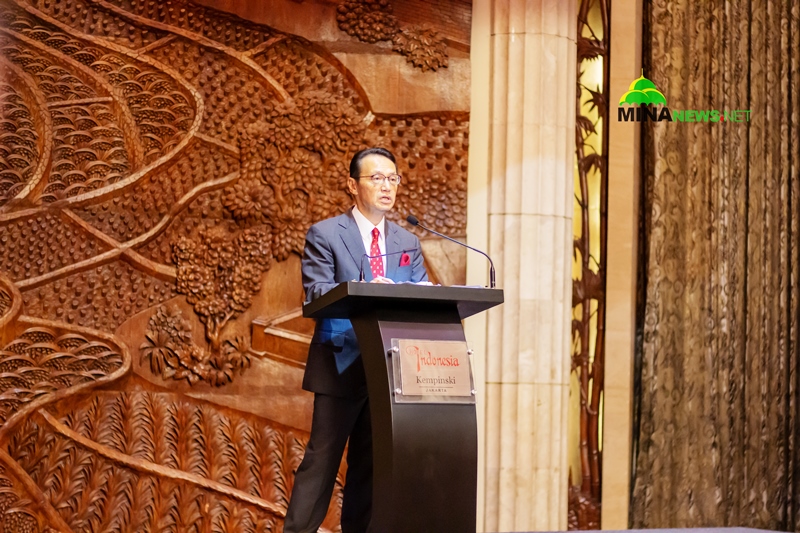





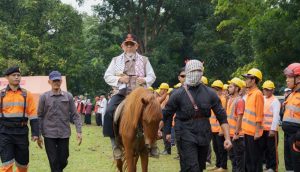
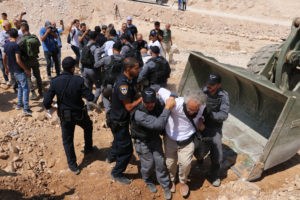
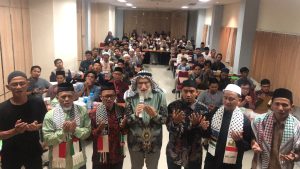

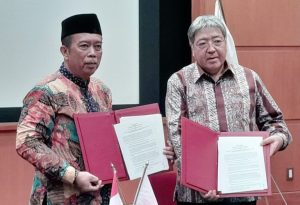
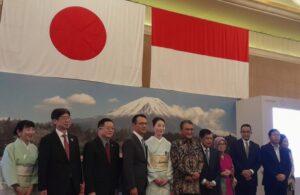
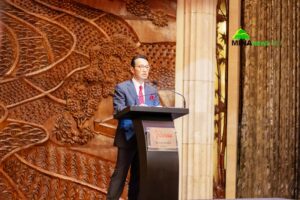
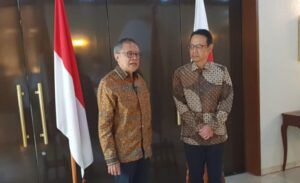
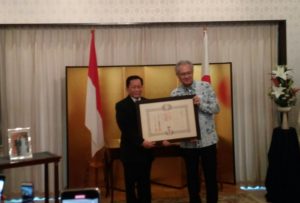
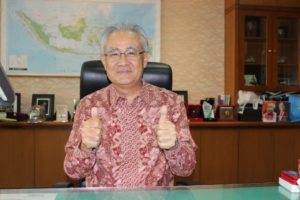














 Mina Indonesia
Mina Indonesia Mina Arabic
Mina Arabic